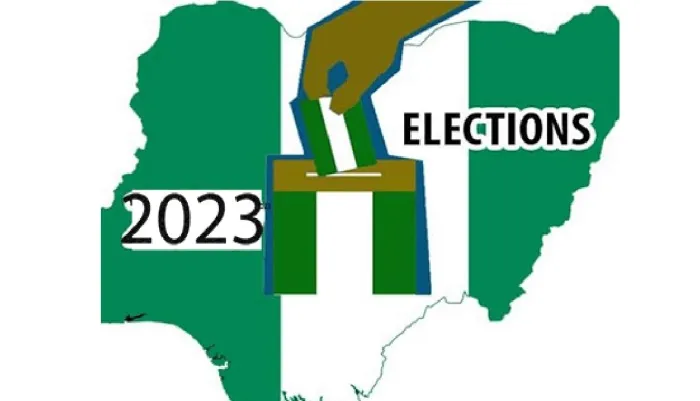Early warning signals for 2023 general elections
The 2023 presidential election is about 12 weeks away but the glaring early warning signals and violations of the electoral legal framework are overwhelmingly petrifying that election stakeholders have continued to express concerns over the conduct of a peaceful and credible elections. The recent report credited to the Nigerian Army saying it is under pressure […]

The 2023 presidential election is about 12 weeks away but the glaring early warning signals and violations of the electoral legal framework are overwhelmingly petrifying that election stakeholders have continued to express concerns over the conduct of a peaceful and credible elections.
The recent report credited to the Nigerian Army saying it is under pressure to manipulate the 2023 general elections may just be one out of the many risks, uncertainties and assumptions that has potential of undermining the process. Thus, there is no better time to build early warning systems and develop mechanisms that will help mitigate the pending challenges associated with the elections.
Political analysts have described the February 25, 2023 presidential election as one that will be keenly contested and as expected the stakes are high with the belief that the outcome of the process will go a long way in determining the future of Nigeria’s electoral democracy. This only means there is more pressure on the Independent National Electoral (INEC) to deliver credible elections that tick all the boxes of rating an election of international repute.
As a matter of fact, every election comes with its own level of pressure from stakeholders both domestic and international, citizens and political parties in the election management body to deliver a credible process. This is not to downplay the progress Nigeria has made in the electoral process in recent years.
End attacks on INEC offices, LP charges security agencies
Paul of P-Square laments increasing rate of Police extortion
Ironically, INEC remains in the eye of the storm while it manages positive pressures to ensure transparency and extraneous pressure to manipulate the process. It’s no more news that, the more the commission makes an effort to bridge gaps in the process, political actors take intentional steps to circumvent and discredit the process for selfish political gains.
Sadly, there has been both successful and unsuccessful attempts to do this both internally, externally, legally and even illegally with reports or bribery of electoral officers to manipulate the process and several attempts to hack INEC Result Viewing Portal (IREV) rife amongst several disturbing news stories that could make the 2023 elections vulnerable to manipulation.
One of such disturbing trends is the recent premeditated and coordinated attacks on the offices and facilities of INEC in different parts of the country. From 2019 till date, close to 50 INEC offices have either been burgled, ransacked, attacked or set ablaze across different parts of the country.
The attacks on INEC office which no doubt will impact on preparation are without prejudice to other security concerns like banditry, kidnapping, insurgency amongst.
While the aim is not to raise alarm or further heat the already heated atmosphere, credible reports from civil society organisations and election observer groups have hinted at various early warning signals that need to be addressed.
For instance, Yiaga Africa through its Watching The Vote (WTV) project, in its recent pre-election observation report of the political and security environment, warned that the 2023 elections may be shaped by insecurity and executive impunity. The major indicator of this impunity is the rampant restrictions in the use of public facilities especially by incumbent governors across political parties against opposition parties.
The pre-election report also revealed that there are ongoing vote buying and selling in at least 33 states in Nigeria with the situation more prevalent in Abia, Bauchi, Borno, Delta, Katsina, Kano, Oyo and Sokoto.
These among other factors make the 2023 elections vulnerable to manipulation.
However, there are still over 60 days to the presidential election which means there is ample time for all election stakeholders, especially the Inter-Agency Committee on Election Security (IACESS), to develop a practical framework to address potential threats to the process. At this crucial time, INEC, civil society organisations, National Orientation Agency and even political parties have a huge task to protect the integrity of the 2023 general elections.
There is a need to intensify voter education engagements across the country especially targeted at women, youth and persons with disabilities.
In the end, no matter the level of preparation by the commission, security is indispensable in the conduct of a credible election. Thus, security agencies should deploy intelligence and employ preventive measures to neutralize existing security threats because if this trend is not curbed, voters will be not be able to exercise their constitutional right to vote in a peaceful and secure environment.
Moshood Isah a communications and elections expert, is the media officer of Yiaga Africa
